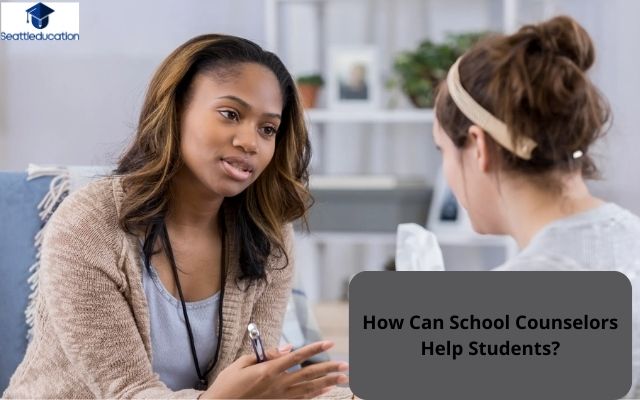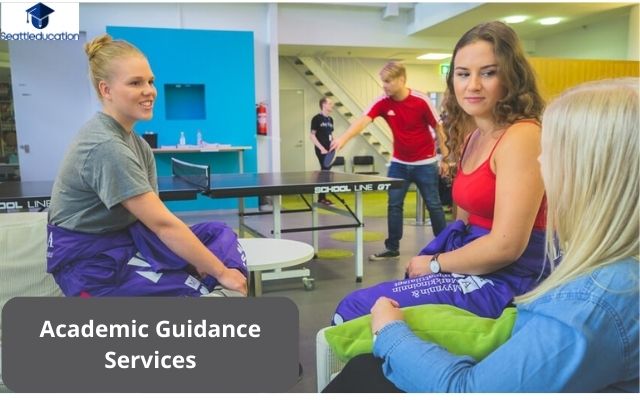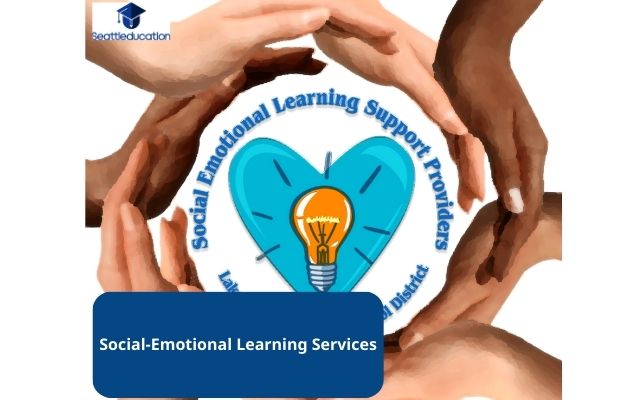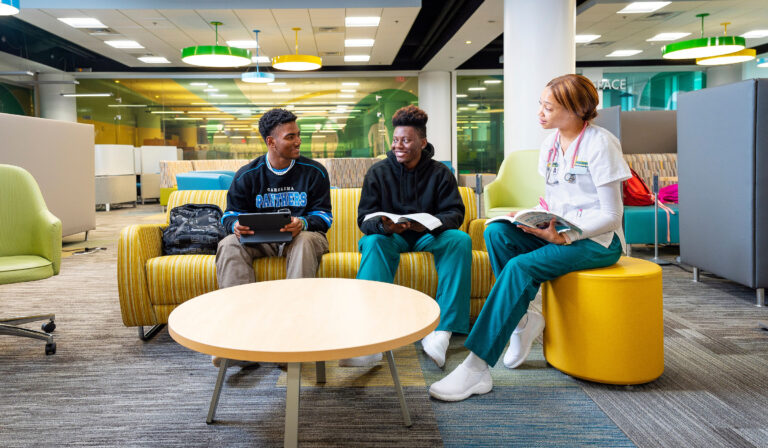School Counseling: All What You Need To Know 2023
School Counseling: As a school counselor, I’m passionate about helping students reach their full potential. It’s my job to provide guidance and resources so that every student can find success in the classroom.
School counseling plays a vital role in creating an environment where students are supported and encouraged to strive for excellence. Counselors use many strategies and techniques to help students achieve academic, career, emotional, and social goals. Through individual and group counseling sessions, as well as collaboration with teachers and other stakeholders, counselors work hard to ensure all students have access to the support they need on their learning journey.
In this article, we’ll explore what it takes to be an effective school counselor.
What Is School Counseling?
I’m sure you’ve heard of school counseling, but what does it actually involve? School counselors provide students with a range of services that focus on helping them reach their fullest potential. From peer mentoring and learning disabilities to time management and self-esteem, they are here to support all aspects of the student’s academic journey.
Family dynamics also play an important role in this process and can be addressed through counseling sessions as well. School counselors work hard to create a safe and supportive environment for students while providing guidance as needed.
They often collaborate closely with teachers, administrators, parents or guardians, social workers, psychologists, speech therapists and other professionals who may be involved in the care of the student. Through these collaborations, school counselors develop individual plans tailored to each student’s unique needs and goals.
With careful planning and consideration for exploring non-teaching roles in education, everyone involved, school counselors strive to help students find success both inside and outside the classroom. As we discuss how they do this next, let us consider the many ways these dedicated professionals go above and beyond for those they serve.
How Can School Counselors Help Students?
I’m a school counselor, and I know how important it is to help students in any way that I can. My job involves providing them with the necessary skills they need to navigate through life successfully. One major role of mine is to help students manage their stress levels while also promoting positive discipline.
This includes teaching peer mediation strategies and building strong relationships with them. Additionally, college readiness activities are essential for helping them transition into adulthood smoothly. The primary goal is always to ensure each student’s well-being – mental, emotional, physical, social and academic.

To do this effectively, I must be knowledgeable about my students’ individual needs and provide relevant resources tailored specifically to those needs. Furthermore, I strive to create an environment where all students feel safe emotionally and physically by addressing issues like cyberbullying or racism immediately when they arise.
School counseling isn’t only about supporting student wellness; it’s about helping them reach their educational goals too. That’s why I focus on offering plenty of academic guidance services such as tutoring programs, test preparation workshops and career exploration seminars so they have the right tools for success both inside and outside of the classroom setting.
With these assistance measures in place, students can make informed decisions about their future paths more confidently than ever before! Now let’s explore what other kinds of support systems exist for meeting their educational objectives…
Academic Guidance Services
I’m sure you can relate to the feeling of being overwhelmed by school work. It’s an all too familiar experience for many students during their educational journey, and that’s why academic guidance services are so important.

Academic guidance lets us take a step back and focus on how we can best equip our learners with the skills they need to succeed! From collaborative learning techniques to self-advocacy strategies, there is much to be gained from these services. Here are just some of them:
- Collaborative Learning: Working together in groups or pairs allows students to problem solve, develop communication and interpersonal skills, and gain insight into different perspectives and ideas.
- Time Management: Setting realistic goals and breaking tasks down into manageable chunks helps alleviate stress as well as increase motivation when tackling complex assignments.
- Study Skills & Test Taking Strategies: Students can utilize resources such as practice tests or study guides designed specifically for their coursework. They may also benefit from developing critical thinking skills through analysis of real-world issues related to their studies.
These offerings give students the opportunity to build confidence in themselves while sharpening valuable skills that will serve them long after graduation day. With this foundational knowledge, they’re ready to tackle any challenge that comes their way–and beyond! So let’s keep exploring other ways we can help support our student population; next up is mental health services.
Mental Health Services
Wrapping up the discussion on teaching career openings, it’s time to move onto mental health services. Mental health is a crucial part of overall wellbeing and can have an effect on our ability to perform in school.
As counselors, we provide students with resources to help them build positive interpersonal skills, manage their time more effectively, gain test taking tips, increase self-esteem and develop meaningful peer relationships.
Supporting these areas allows us to lead students into healthier lifestyles that will enable personal growth while in school as well as after graduation.
We partner with parents to ensure that each student has access to appropriate resources such as counseling sessions with trained professionals who are adept at providing individualized attention and support for young people.
Mental health does not exist in isolation; addressing this area helps create better outcomes when dealing with other issues like career guidance services.
It provides an opportunity for students to look within themselves and recognize how they can take control of their lives while creating the necessary changes needed for success beyond academia.
Career Guidance Services
I’m sure many of us have experienced the daunting task of exploring career paths and building resumes. It’s no secret that it can be a challenge to find job opportunities, especially in today’s economy. That’s why I’m here to provide guidance on how you can successfully navigate the career exploration process, as well as build up your resume and job searching skills.
One way to start is by researching different occupations, industries, and companies. This will help you narrow down which options are best for you based on your interests or skillsets.
Additionally, understanding what knowledge, experience, credentials employers are looking for in an ideal candidate helps with crafting a strong resume tailored to specific positions. Having a professional document showcasing your experiences and qualifications allows hiring managers to better assess if you’re right fit for the role.
Networking plays a major role when job searching too! Leveraging online resources such as LinkedIn or attending virtual events related to your field can open doors to new connections who may know about potential openings or even refer you directly for available roles within their own company.
In addition, making sure you’re prepared for interviews like practicing answers ahead of time and having mock conversations with peers can make all the difference in confidently selling yourself during these important moments!
With this advice under our belts let’s move onto talking about social-emotional learning services – another key element of my school counseling work here at [name] School District.
Social-Emotional Learning Services
Now, let’s explore social-emotional learning services.

These types of services are an important part of the overall school counseling program because they can provide students with tools and skills to better understand their emotions and make positive life choices in areas such as:
- Social media usage
- Positive affirmations
- Trauma informed care
At my school, we strive to create a safe environment for our students where everyone is accepted regardless of race, religion or any other factor that could lead to discrimination.
We use diversity inclusion practices and activities to encourage acceptance among peers. In addition, peer support groups are also offered to discuss issues ranging from academic pressure to friendships – all while providing a supportive network for those who want it. Finally, we offer various crisis intervention services which help students cope with difficult situations such as bullying or grief.
By engaging in these conversations early on, we hope to nurture healthy relationships between both student and staff members so that every child feels empowered and supported when facing challenges.
Crisis Intervention Services
I’m deeply committed to providing virtual teaching opportunities to the students, staff and families at my school. My goal is to develop collaborative strategies that involve stakeholders from across our community in helping those who are struggling through difficult times.
Part of this process includes offering self care strategies like stress management techniques, communication skills development and professional development opportunities for faculty members to build their cultural competency when it comes to addressing student crises.
At the same time, I’m dedicated to making sure that all individuals involved have access to resources they need in order to heal and manage their issues effectively. This could include connecting them with mental health professionals or local agencies that provide additional support.
To make sure these efforts are successful, I will be actively engaged in monitoring progress and taking steps as necessary so everyone feels heard, respected and understood throughout the journey.
Moving forward now into college planning services – a key component of preparing our students for life after high school – we must ensure they receive comprehensive guidance on how best to utilize their talents, abilities and interests towards achieving success in post-secondary education.
College Planning Services
Once we have addressed the crisis intervention needs of our students, I want to then move on to discussing college planning services. This is a crucial step in helping our students reach their full academic potential and achieve success after high school.
One key element of college planning services is assisting with college selection criteria. We need to help our students understand what factors are important when selecting colleges they wish to attend, such as size, location, cost, degree program availability, extracurricular activities offered, etc.
After outlining these elements for them and assessing which schools best fit their individual needs, it’s time to discuss financial aid options that may be available. Financial assistance can come from multiple sources such as scholarships, grants or loans so I make sure my students are well-informed about all possibilities before making any final decisions.
As part of the college planning process, I also work closely with my students on developing the skills necessary for college readiness such as studying techniques, organizational strategies and writing assignments effectively.
My goal is for each student to feel prepared and confident when entering into the admissions process and completing their applications successfully. By providing guidance throughout this entire process – from college selection criteria through application preparation – I am empowering my students while setting them up for future educational success!
Substance Abuse Prevention Services
I’m here to help you understand the importance of substance abuse prevention services. Addiction awareness is key when it comes to understanding how substances can affect your life and those around you.
It’s important for us to discuss self reflection techniques, coping strategies, social media safety, and peer support groups as tools in preventing addiction.
Self reflection techniques involve taking a step back from any situation that has potential risk associated with it. This means assessing the risks involved in using certain substances and understanding why they may be dangerous for your health or wellbeing.
Coping strategies are also great methods for dealing with difficult situations without relying on unhealthy behaviors like substance use. Social media safety means being aware of what content you choose to share online and who gets access to this information; it’s important for protecting yourself from negative influences related to substance misuse.
Finally, peer support groups provide an opportunity for individuals affected by addiction issues to come together and offer each other mutual aid during recovery processes.
All these resources have one thing in common: They give people power over their own lives so they don’t have to fall prey to addiction-related challenges. Taking advantage of these preventive measures can save someone from facing more serious consequences further down the line, which is why I highly encourage anyone considering using drugs or alcohol to seek out such services beforehand.
With that said, let’s move onto discussing bullying prevention services…
Bullying Prevention Services
Moving away from substance abuse prevention, bullying prevention services are equally important and beneficial for school counselors to provide.
To prevent bullying in the school environment, it is critical to improve self esteem among students as well as identify warning signs that could lead to someone becoming a perpetrator or victim of bullying.
Building empathy and fostering friendships between peers can help reduce potential triggers leading up to an incident. Schools should also work on recognizing triggers within individual classrooms so they can act swiftly when necessary.
This may include providing additional support for those who need it most, along with educating all staff members on how best to intervene in any given circumstance.
Furthermore, creating understanding towards differences amongst classmates helps build relationships and promote respect among everyone involved.
By implementing comprehensive programs focusing on anti-bullying initiatives, schools will be able to create safe learning environments where students feel secure knowing their wellbeing is taken seriously by professionals.
As such, these approaches have been proven effective at preventing aggressive behavior while simultaneously encouraging positive behaviors through building skills like communication and problem solving.
With this approach comes improved student morale overall which leads into parent education services – another key element in ensuring collective success throughout the entire school community.
Parent Education Services
As a school counselor, I’m passionate about helping parents to become more involved in their children’s education. It is so important for students to be supported at home and it has been shown that when parents are actively engaged in their child’s learning process, the student’s academic performance increases.

That’s why my parent education services focus on topics such as conflict resolution, study skills, self-advocacy, career exploration and college readiness. By providing resources and strategies that empower families to develop positive relationships with their children, I help them foster an environment of respect and understanding at home.
My goal is to equip parents with the tools they need to guide their children through educational challenges while teaching independence from an early age. With my support, families can find easy ways to open up conversations around potentially difficult subjects like grades or extracurricular activities, all while finding creative solutions together!
In addition to tackling topics related to academics and personal growth, I also have experience working closely with adolescents during transition periods such as graduation or applying for college. Through these experiences I’ve learned how impactful it can be when parents stay informed about what’s going on in their child’s life—it enables them to provide better guidance towards reaching successful outcomes!
By using research-based approaches combined with empathy and patience, I strive every day to ensure our future generations are equipped with the necessary skills for success both inside and outside the classroom.
Conclusion
As a parent, it’s important to understand the role of school counseling and how it can help your child. Taking advantage of these services can be an invaluable part of helping them succeed in their educational journey.
Doing research on the best qualified counselor for you and your family is essential in order to find someone with whom both you and your child feel comfortable communicating openly about any issues or concerns they may have.
Additionally, there are many other resources available that parents can access if they need further assistance for their children. With this knowledge, I hope that all parents will take the time to ensure their children receive the support they need from a qualified professional.






